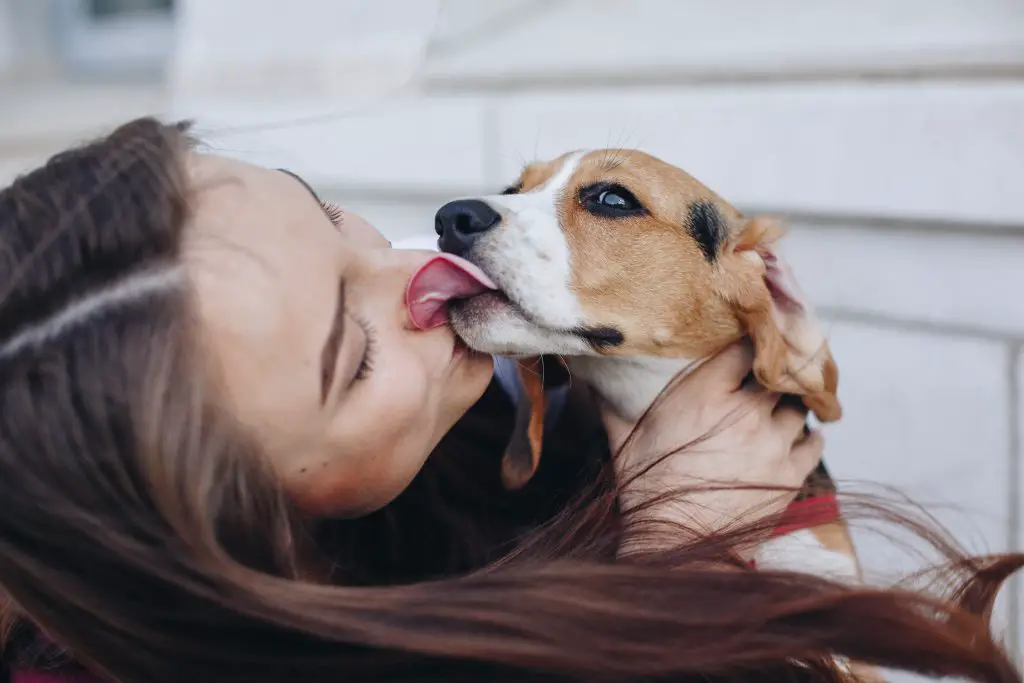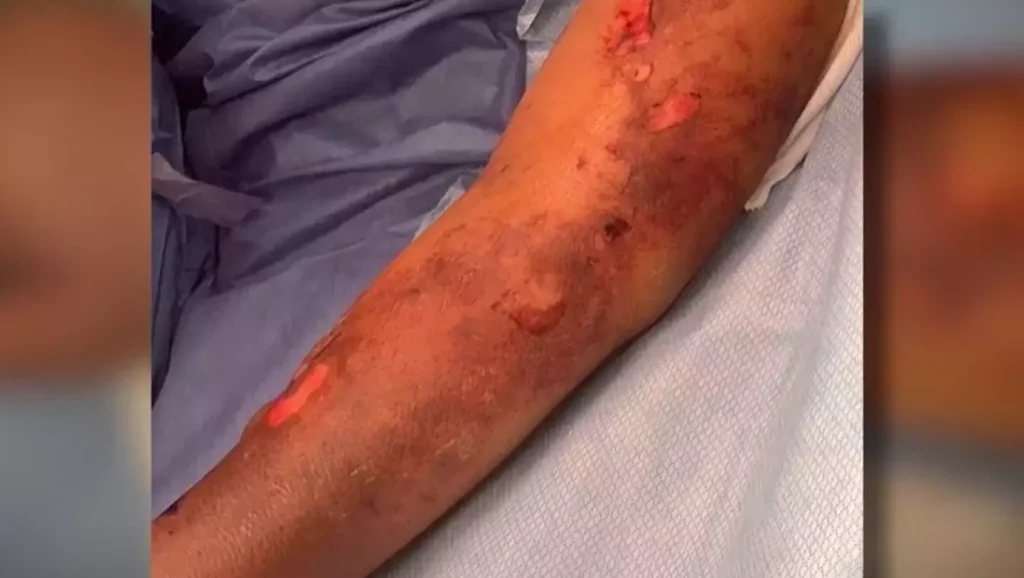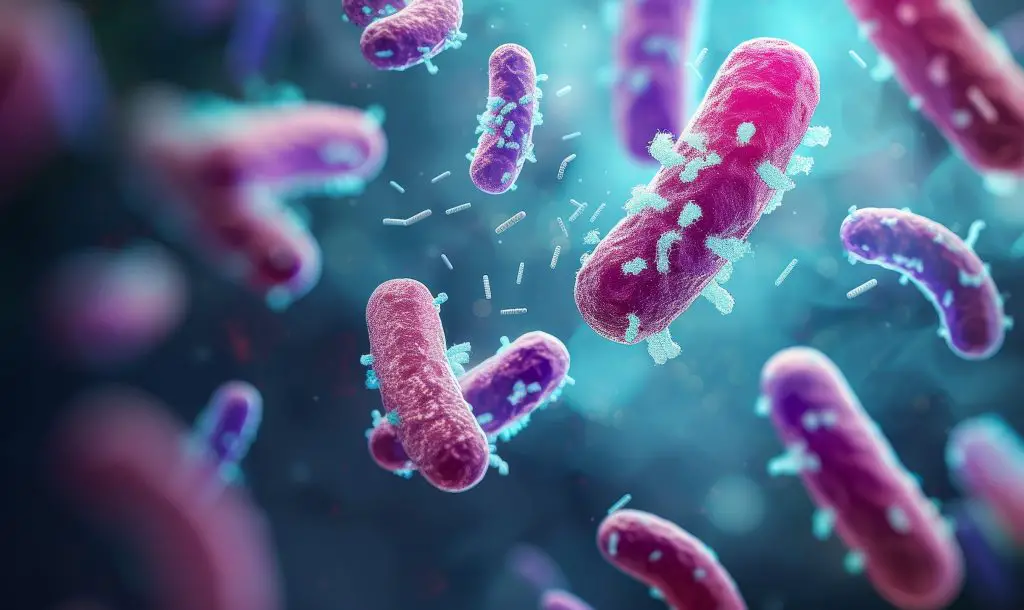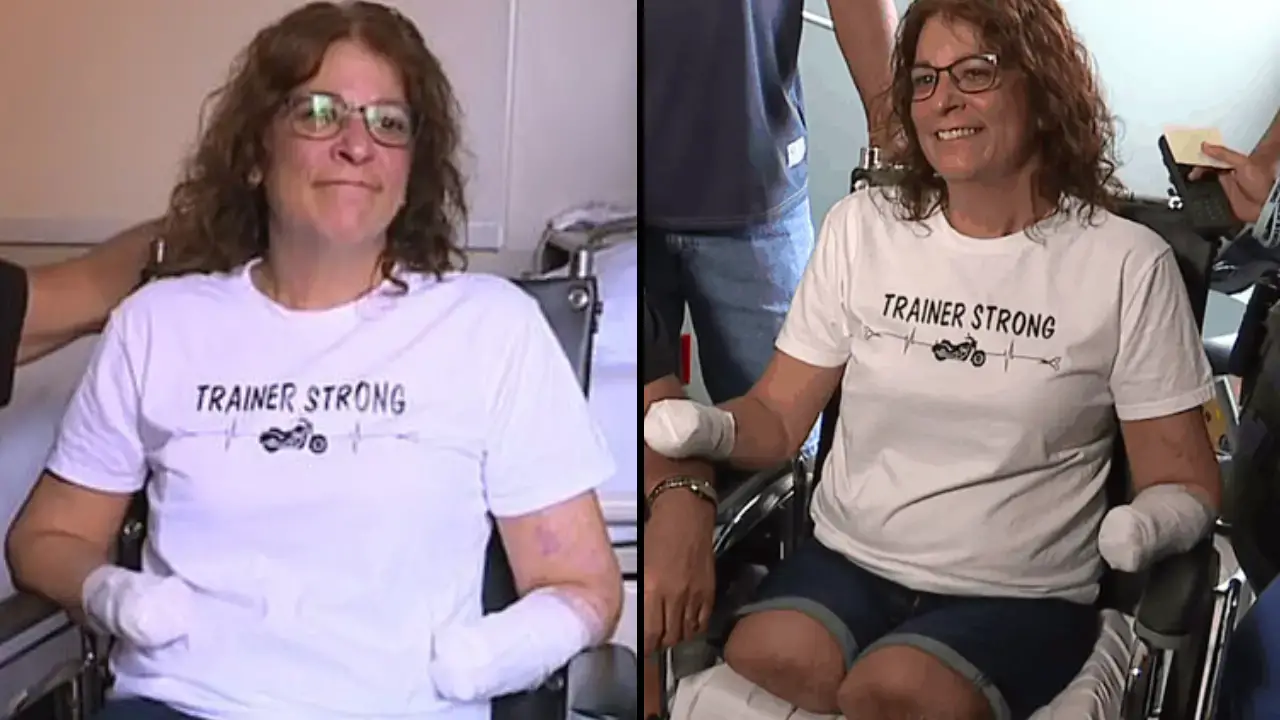A veterinary expert has issued a strong warning against allowing dogs to lick human faces.
A veterinary expert has issued a strong warning against allowing dogs to lick human faces, following a devastating case in which a woman lost her arms and legs after contracting a rare bacterial infection. The incident has highlighted the potential dangers of zoonotic diseases—those transmitted from animals to humans—even in close, loving relationships with pets.
A Shocking Case of Infection
Marie Trainer, a resident of Stark County, Ohio, experienced the unimaginable in 2019 after returning from a vacation with a minor cut on her hand. Upon arriving home, her dog greeted her with affectionate licks, a gesture many pet owners would consider harmless. However, within days, Marie began feeling severely unwell.

“Four days later, I wasn’t feeling well and just got sicker and sicker,” Marie recounted to FOX News. Initially believing she had contracted the flu, her husband, Matt, rushed her to the hospital as her condition worsened. Doctors were baffled at first but soon discovered the cause: Marie had contracted Capnocytophaga canimorsus, a bacteria found in the saliva of dogs and cats.
The Dangerous Effects of Capnocytophaga
The bacteria, though typically harmless to animals, can have devastating effects when introduced into the human body, particularly through cuts or wounds. In Marie’s case, her body mounted an intense immune response, leading to blood clots that cut off circulation to her limbs. Tragically, this left doctors with no choice but to perform a quadruple amputation to save her life.
Reflecting on her recovery, Marie said, “It’s been challenging. Learning how to walk was the hardest thing, but I’m good, I’m doing good.” Despite her progress, the life-altering event serves as a sobering reminder of the hidden risks associated with pet interactions.
Expert Warnings About Zoonotic Diseases
Veterinary experts are now urging caution regarding close physical interactions with pets. The Falls Village Veterinary Hospital in North Carolina highlighted the array of bacteria and parasites dogs can harbor. These include E. coli, salmonella, campylobacter, and even parasites like giardia and roundworms, which can be transmitted through licks. While healthy adults are less likely to experience severe complications, exposure to these microorganisms can still lead to gastrointestinal issues and infections.

Close Bonds Can Pose Risks
Sophia Kenney, a lead researcher at Penn State, emphasized the unique risks of close human-pet interactions. “We think about agriculture when it comes to zoonotic diseases, like eggs or beef,” she said. “But unlike cows, dogs sleep in our beds and lick our faces. That close bond creates a higher risk of transmission.”

Raising Awareness for Pet Owners
Marie’s story has sparked a broader conversation about the importance of awareness and preventive care. While most pet interactions are safe, it’s essential to recognize the potential dangers, particularly for individuals with weakened immune systems or open wounds. Veterinary professionals recommend maintaining good hygiene, regular pet health checkups, and avoiding direct contact with a pet’s saliva.
A Life Changed Forever
Marie’s journey of recovery continues with prosthetics and extensive rehabilitation. Her resilience in the face of such adversity has inspired many, but her experience stands as a cautionary tale. “I just want people to be aware,” she said. “What happened to me was rare, but it can happen. Be careful and take precautions.”
Her case underscores the need for a balanced approach to pet care—one that cherishes the bond between humans and animals while recognizing the responsibilities that come with it.

